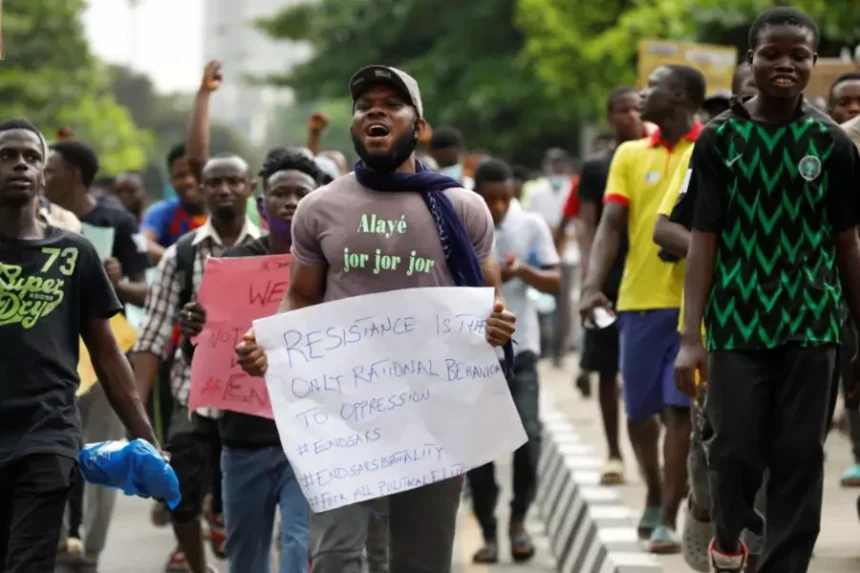YESTERDAY, December 10, marked the 75th anniversary of the Universal Declaration of Human Rights, which recognises inalienable rights for everyone, regardless of race, colour, sex, religion, or any other status. In the years since the pledges were adopted, African country leaders have reneged on their citizens’ human rights with impunity.
The Nigerian military, for example, has been accused of widespread human rights abuses in its protracted conflicts with Islamic insurgents terrorizing Nigeria’s northern flank. Scores of hapless citizens have been murdered indiscriminately. SBM Intelligence, a Nigeria-based consultancy, estimates that at least 700 civilians were killed in insurgency attacks between July and September 2023. Together with the ravages of climate change, prevailing insecurity in the north has exacerbated the food crisis in the country as farmers abandon their farms and scamper for safety.
Agitations by the IPOB sect are brewing on the southeastern front due to the continued detainment of Nnamdi Kanu, the leader of the sect. “Unknown gunmen” have subsequently launched a spree of extrajudicial murders, killing over 287 people in the first half of 2022.
Women’s and Children’s Rights
The Nigerian military has also been implicated in grave assaults against women. In December 2022, Reuters reported that the Nigerian military had aborted at least 10,000 pregnancies without the consent of the women and girls. While 98 Chibok schoolgirls abducted by Boko Haram remain in captivity, an estimated 20 million Nigerian children are out of school, according to UNESCO.
Freedom of Expression
The erstwhile administration of Muhammadu Buhari was especially notorious for its crackdown on perceived political opposition. Criticism and protest were often met with intimidation and violence. On March 21, the Federal High Court in Calabar dismissed the charges of treason against Agba Jalingo. A journalist, Jalingo had been detained for more than 179 days. In May 2022, Deborah Samuel, a female college student, was stoned to death by Muslim students for alleged blasphemy against the Prophet Muhammad.
Perhaps most notable is the 2020 Lekki Massacre, in which the Nigerian military killed at least 12 people, leaving dozens wounded. Peaceful marches to commemorate the gruesome 2020 EndSARS protests have equally met with fierce intimidation from state-approved forces. No fewer than four protesters were arbitrarily rounded up at the 2022 EndSARS commemoration on trumped-up charges.
In June 2021, the Nigerian government issued a seven-month ban on X (formerly known as Twitter). The social-messaging platform had deleted the former president’s tweet for breaching its site’s rules.
A Continent-wide Crisis
As it seems, Nigerians continually suffer an onslaught of violations against their human rights. Yet these rights abuses are not peculiar to Nigeria. Citizens of many African nations are frequently migrating to Western countries to flee from discrimination and crackdowns in their homeland. In May 2023, Uganda became the latest African nation to sign the Anti-Homosexuality Act, which stipulates the death sentence for those convicted of “aggravated homosexuality.”
Elsewhere, LGBTQ communities are victims of both mob attacks and police intimidation. In April, a mob violently attacked four men in Kumasi, Ghana, who were perceived as gay. Continued conflicts in Cameroon displaced 340,000 people as of 2021. Meanwhile, intelligence services were recruited to crack down on political dissenters in Congo. This has raised concerns about the country’s upcoming democratic elections due in a week’s time. Scores of citizens face displacement and hunger threats because of extreme mining activities that threaten their natural settlements.
But there has been some accountability for heinous crimes against human rights, such as compensation for victims of police violence in Nigeria, led by the National Human Rights Commission. In October 2022, the Special Criminal Court, based in the Central African Republic, convicted alleged members of the “3R” rebel group for “crimes against humanity.” Nevertheless, these progressive developments pale in comparison to the persisting myriad abuses.
A Recurrent Pattern
Six months after President Tinubu succeeded Muhammadu Buhari, Amnesty International reckons that his administration is also culpable for human-rights violations. In its report titled “Nigeria: Human Rights Agenda 2023,” the human-rights organisation explained that the new government policies hardly address the widespread human rights abuses in the country. One prime example is seen in the recent mishap by the country’s military in the Nigerian state of Kaduna. A little over a week ago, the Nigerian military launched a drone attack on a group of Muslim worshippers perceived to be bandits. At least 85 people, including women and children, were pronounced dead, according to the Nigerian Emergency Management Agency. Amnesty International, however, reckons that the death toll is much higher, numbering close to 120 people.
But, as in previous “mishaps,” the Nigerian authorities have failed to hold the military to account for these arbitrary crimes against innocent civilians.





